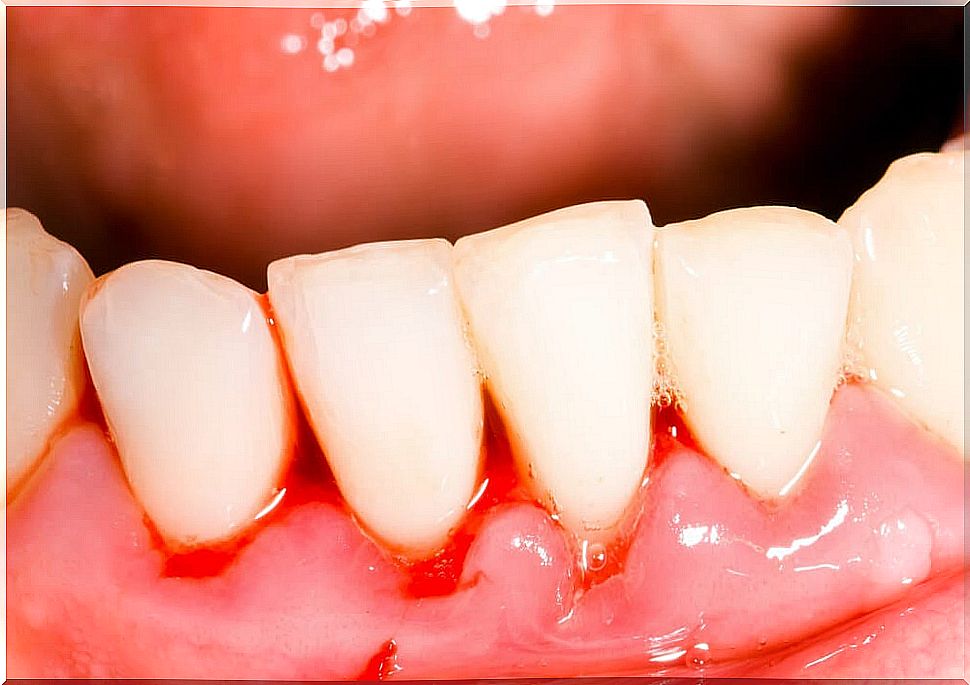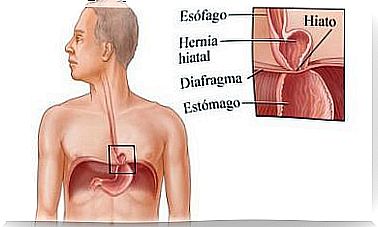An Infection In The Mouth As Possible Onset Of Alzheimer’s According To A Study
An infection in the mouth as a possible beginning of Alzheimer’s has been the news of several investigations that have been published in the last year. In particular, an article in Science Advances links a bacterium in the oral cavity with the brain of Alzheimer’s patients.
Already in the past decade there have been scientific studies that pointed in the same direction. The most closely related microorganism is Porphyromonas gingivalis, a bacterium that gives rise to the oral disease known as chronic periodontitis, which affects the gums.
What the researchers found was the same bacteria in the brains of deceased patients with Alzheimer’s disease. This postulates the hypothesis of an infection in the mouth as a possible initiation of this disease.
In addition, the research found gingipains in the brains themselves, which are toxic substances produced by the bacteria. However, gingipains were also present in other brains of people who died without Alzheimer’s.
What is Alzheimer’s disease?
Alzheimer’s disease is a dementia; it is the most frequent of these forms of cognitive impairment in the adult population. Age and aging are a risk factor for the disease, since a high prevalence has been detected in those over 65 years of age, and even more so in those over 85.
If a family member has had Alzheimer’s, it is more likely that in the same family there is another member with the same disease. Genetics have been linked to this causality, and portions of DNA have even been identified that would be altered in patients.
The possibility of an infection in the mouth as a possible onset of Alzheimer’s has always been a suspicion, beyond the other risk factors. The brains of those affected present inflammatory changes that are difficult to explain if they are not attributed to an infectious microorganism.
Symptoms of the disorder tend to get worse over time. At first there is affectation of thought and language. Then memory is affected, with clear difficulties to recognize names and people. In a second stage it becomes difficult to speak and, of course, to write.
Common symptoms at the end include: impaired performance of common activities, such as brushing teeth, combing hair, or dressing. In addition, there may be aggressiveness, which makes proper approach and care difficult.

What is chronic periodontitis?
The infection in the mouth that is identified as a possible cause of the onset of Alzheimer’s is chronic periodontitis. It is an inflammation of the gums that, if severe, destroys the supporting tissue of the teeth, causing them to fall out.
Not all periodontitis is the same, and its forms of presentation are varied:
- Common Chronicle: This is the most frequent of all. It is rare in children and, if left untreated, eventually culminates in tooth loss. There have been cases of spontaneous improvement, but it cannot be missed.
- Progressive: its evolution is very fast, also leading to tooth loss. It has a family genetic component that makes it more common among related individuals.
- Necrotizing: it is the most aggressive form of periodontitis. The affected tissue dies because it does not get good blood supply. It is much more common among people with immune problems, such as those infected with HIV or those undergoing cancer treatments.

Can an infection in the mouth be a possible onset of Alzheimer’s?
The answer to the question has not been fully clarified by recent studies. While there are clues pointing in this direction, it would be unwise to claim that there is a direct link.
In Alzheimer’s, the brain fills with proteins called amyloids. Amyloid plaques could be the body’s defense mechanisms against bacterial infections, and hence a door that opens to think about bacteria as possible causes of evil.
On the other hand, the P. gingivalis bacterium has already been associated with other diseases of the body that do not settle in the mouth. There is an association with acute myocardial infarction and premature delivery, for example.
On the opposite side, it is known that Alzheimer’s patients are more likely to be infected with a variety of microorganisms. The mouth, in particular, is a very suffering place for these patients, since their hygiene is poor due to all the behavioral disorders they suffer.
Therefore, until now, caution prevails. It is possible that an infection in the mouth can start Alzheimer’s, but further confirmation would be necessary in this regard. For now, the direct cause is unknown, and treatment remains palliative, not curative.









